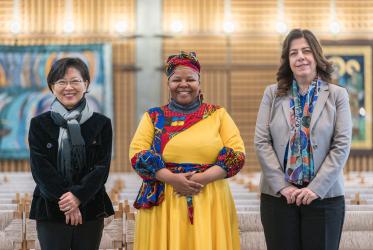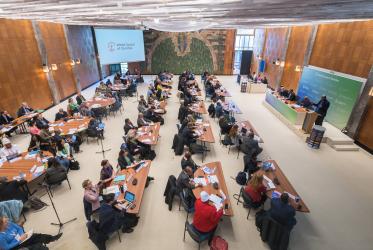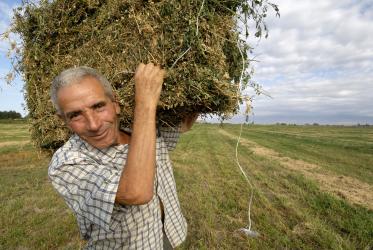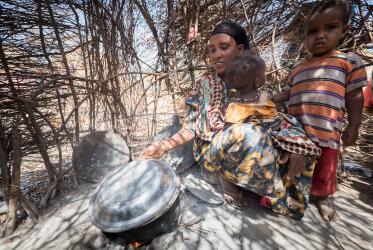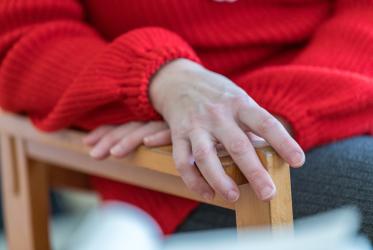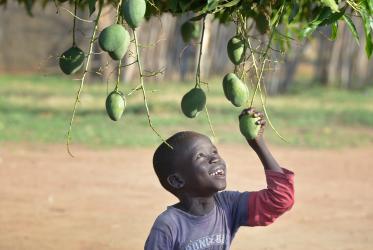Displaying 1 - 20 of 268
Three WCC commissions elect vice moderators
08 March 2024
WCC to share key insights at World Social Forum
09 February 2024
In Angola, WCC takes human rights approach to obstetric fistula
01 February 2024
WCC webinar explores decolonizing beauty
11 December 2023
WCC Eco-School begins in Crete
15 November 2023




